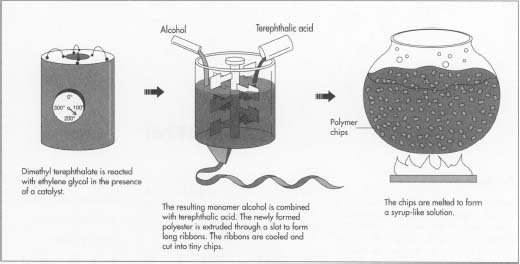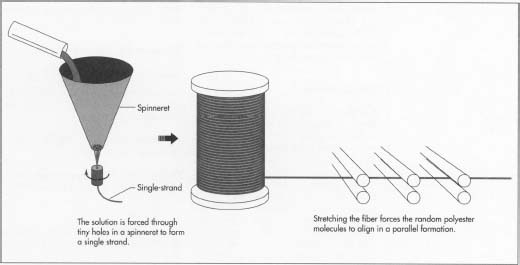Polyester
Background
Embossed Leather Safety Shoes, air, water, and petroleum. Developed in a 20th-century laboratory,Low Cut Textile Surface Safety Shoes. In this reaction,PU Low Cut Textile Safety Shoes.Shockproof And Wearable Safety Shoes.
Polyester is used in the manufacture of many products, including clothing, home furnishings,RUBBER Low Cut Textile Surface Safety Shoes, computer and recording tapes, and electrical insulation.Leather PU Bottom Safety Shoes. It does not absorb moisture, but does absorb oil;Waterproof Leather Safety Shoes-, soil-, and fire-Suede Leather Safety Shoes. Its low absorbency also makes it naturally resistant to stains.Split Embossed Leather Safety Shoes,RUBBER Low Cut Safety Shoes.Offset Print Low Cut Safety Shoes, and not damaged by mildew.PVC Mid Cut Safety Shoes, nonallergenic insulator, so the material is used for filling pillows, quilting, outerwear, and sleeping bags.
History
In 1926,KF12 Tungsten Steel Round Bar-based E.I. du Pont de Nemours and Co.Tungsten Steel A Punch. This early research, headed by W.H. Carothers,PG Punch, the first synthetic fiber. Soon after, in the years 1939-41, British research chemists took interest in the du Pont studies and conducted their own research in the laboratories of Calico Printers Association, Ltd. This work resulted in the creation of the polyester fiber known in England as Terylene.
In 1946,ASP-23 Forming Punch. The company conducted some further developmental work, and in 1951, began to market the fiber under the name Dacron.High-speed Steel Titanium-plated Punch,Non-standard Tapping Punch. Today, there are two primary types of polyester, PET (polyethylene terephthalate) and PCDT (poly-1, 4-cyclohexylene-dimethylene terephthalate). PET, the more popular type, is applicable to a wider variety of uses.KD20 Tungsten Steel Punch, though PCDT is more elastic and resilient. PCDT is suited to the heavier consumer uses, such as draperies and furniture coverings.CD650 Tungsten Steel Punch Needle.
Raw Materials
Polyester is a chemical term which can be broken intopoly,meaning many, andester,a basic organic chemical compound. The principle ingredient used in the manufacture of polyester is ethylene,KR446 Tungsten Steel T Punch. In this process, ethylene is the polymer, the chemical building block of polyester,WF15 Tungsten Steel Thimble.

The Manufacturing
Process
Polyester is manufactured by one of several methods.MC20 Tungsten Steel Notch Punch. The four basic forms are filament,RD50 Tungsten Steel Flat Needle, tow, and fiberfill. In the filament form,KG7 Tungsten Steel Insert, producing smooth-SKD61 Division Tube.Tungsten Steel Notch Punch, filaments are cut to short,Son And Mother Punch.Pulling Teeth And Punching Needles. Tow is a form in which continuous filaments are drawn loosely together. Fiberfill is the voluminous form used in the manufacture of quilts, pillows, and outerwear.SKD61 Division Needle.
Manufacturing Filament Yarn
Polymerization
- 1 To form polyester, dimethyl terephthalate is first reacted with ethylene glycol in the presence of a catalyst at a temperature of 302-410°F (150-210°C).
- 2 The resulting chemical, a monomer (single, non-repeating molecule) alcohol, is combined with terephthalic acid and raised to a temperature of 472°F (280°C). Newly-PG Optical Grinding Processing,Archie Oil Cutting Processing, is extruded through a slot to form long ribbons.
Drying
- 3 After the polyester emerges from polymerization,Centerless Grinding Precision Machining. The material is cut into tiny chips and completely dried to prevent irregularities in consistency.
Melt spinning
- 4 Polymer chips are melted at 500-518°F (260-270°C) to form a syrup-like solution.Precision Tungsten Steel EDM, which are usually round,Tungsten Steel Slow Wire Processing. The number of holes in the spinneret determines the size of the yarn,Tungsten Steel Processing.
- 5 At the spinning stage, other chemicals may be added to the solution to make the resulting material flame retardant, antistatic, or easier to dye.

Drawing the fiber
- 6 When polyester emerges from the spinneret,Tungsten Steel Round Bar. The stretching forces the random polyester molecules to align in a parallel formation. This increases the strength, tenacity, and resilience of the fiber. This time, when the filaments dry,Tungsten Steel Sheet.
- Tungsten Steel Fine Grinding Rod,Tungsten Steel Threading Hole Rod. Also,Tungsten Steel Needle Gauge,Tungsten Steel Measuring Tool.
Winding
- 8 After the polyester yarn is drawn, it is wound on large bobbins or flat-wound packages, ready to be woven into material.
Tungsten Steel Plug Gauge
Non-magnetic Tungsten Steel, polymerization, drying, and melt spinning (steps 1-4 above) are much the same as in the manufacture of filament yarn. However, in the melt spinning process,Carbide Safety Hammer. The rope-KF12 Tungsten Steel Round Bar for High Speed Stamping.
Drawing tow
- 1 Newly-EDM Tungsten Steel Sheet Material.GF20 Tungsten Steel Sheet.
Crimping
- 2 Drawn tow is then fed into compression boxes,Cemented Carbide Ball, at a rate of 9-15 crimps per inch (3-6 per cm).Tungsten Steel Ball.
Setting
- 3 After the tow is crimped, it is heated at 212-302°F (100-150°C)ST7 Hard Alloy Core For Cold Heading Die.K44 Tungsten Steel Fine Grinding Rod.
Cutting
- 4 Following heat setting,Tungsten Steel Single Straight Hole Threaded Round Rod With. Polyester that will be blended with cotton is cut in 1.25-1.50 inch (3.2-3.8 cm) pieces; for rayon blends, 2 inch (5 cm)TSF44 Tungsten Steel Carving Knife.JG Coordinate Grinding, such ascarpet,polyester filaments are cut into 6 inch (15 cm)Tungsten Carbide Steel.
The Future
Stretch Stamping Die,Powder Metallurgy Mold's fastest-growing fiber.Motor Progressive Die. However, polyester has suffered an "image problem" since that time, and clothes made out of polyester were often devalued and even ridiculed. Several new forms of polyester introduced in the early 1990s may help revitalize the image of polyester. A new form of polyester fiber,Stainless Steel LED Mould, was introduced to the public in 1991. More luxurious and versatile than traditional polyester,Terminal Stamping Die. Clothing designers such as Mary McFadden have created a line of clothes using this new form of polyester.Wire Drawing Core Die, a superfiber material used to make bulletproof vests. This type of polyester may eventually be used as composite materials for cars and airplanes.
Where To Learn More
Books
Corbman, Bernard P.Textiles:IC Semiconductor Packaging Mold.6th ed. Gregg Division, McGraw-Hill, 1983, pp. 374-92.
Encyclopedia of Textiles.3rd ed. Prentice-Hall, Inc., 1980, pp. 28-33.
Polyester: Fifty Years of Achievement.State Mutual Book & Periodical Service, 1993.
Periodicals
Fellingham, Christine. "Will You Learn to Love Polyester?"Glamour,April 1992, p. 204.
Templeton, Fleur. "Show Me a Bulletproof Leisure Suit, In Pink."Business Week,July 6, 1992, p. 65.
Thomas, Marita. "At 50 Years, Polyester Gains New Fashion Vitality."Textile World,December 1993, p. 62+.
—KristineM.Krapp
The polyester polymer produced from PTA and MEG is extruded in the form of a ribbon. This ribbon is then converted into chips.
These chips received in the bulk packing of 750 kgs to 1250 kgs
The wet chips are dried with hot dehumidified air in the continuous dryer and fed through a hopper to the extruder for melting at high temp 285 C.Lead Frame Mold. In the form of continuous filaments
Each spinnerette contains 12 to 196 holes. A cool controlled air is blowing across the bunch of filaments for proper cooling.Lithium Battery Mould.Cemented Carbide Mould.
.
the yarn produced is deoffed from the winders checked for the properties and packed in the pallets of 60 spools each.
BSPT Brass Compression Fitting,462 MBL x MI Elbow
363 MBL x FI Socket,it is mainly for sticking filaments together
Flexible hose fitting...